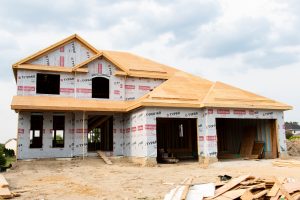Entering the workforce and beginning to carve out lives of their own, the Millennials have captured their share of attention over the last decade, and that’s proven particularly so in the real estate game where one in three homebuyers come from the Millennial set.
As the nation’s largest, most active share of homebuyers, outpacing both Gen X and the Baby Boomers, much has been written about the Millennials’ real estate habits. But not all of the headlines hold up to reality, according to recent data from the National Association of Realtors’ 2018 Home Buyer and Seller Generational Trends Report.
Millennial Myth #1: Millennials aren’t interested in owning a home.
There’s a popular misconception that Millennials are quite content bypassing homeownership, a traditional marker of adulthood. In reality, however, nearly half of Millennials listed “desire to own a home of my own” as their primary reason for purchasing a home.
Millennial Myth #2: Millennials are flocking to the city and rejecting the suburbs.
It’s true that urban life has proven alluring for many in the Millennial generation, but that has not necessarily translated to the real estate market. Only 15 percent of recent Millennial buyers purchased a home in an urban area or city center. In fact, more than half (52 percent) chose a home in the suburbs or in a subdivision.
Millennial Myth #3: Millennials have snubbed single-family homes.
A common argument holds that Millennials are most interested in condos, townhomes, and lofts and have little interest in single-family homes. Yet, among recent Millennial homebuyers, 85 percent purchased a detached single-family home.
Millennial Myth #4: Millennials aren’t financially prepared to purchase a home.
Saddled with school debt and reportedly incapable of saving, Millennials have been painted as financially ill-prepared to own a home. While school debt is real – nearly half (46 percent) of Millennial homebuyers carry student loan debt with the median tally coming in at $27,000 – three out of four Millennial homebuyers actually turned to their savings for a down payment. Yet more, only one in 10 named getting a mortgage as the most difficult aspect of the buying process.
Millennial Myth #5: Millennials don’t pursue homeownership for fear of buyer’s remorse.
Millennials have been labeled a fickle bunch, a group accustomed to returning items they’ve purchased and glossing over their missteps. Yet, only 1 percent of recent Millennial homebuyers regretted having purchased their home when they did or wished they had waited. That means 99 percent report happiness with their purchase.
Millennial Myth #6: Millennials are leading the tiny house movement.
Sharpened by the Great Recession and a desire to shed non-essentials, Millennials have been tabbed as leaders of the tiny house movement sweeping the nation. But make no mistake, Millennials enjoy their space. More than half of recent Millennial homebuyers purchased a new home of at least 2,000 square feet while one in four purchased a home of at least 2,500 square feet.
Millennial Myth #7: Millennials only care about the snazzy finishes.
It’s popular to think Millennials can be fooled by the proverbial lipstick on a pig, so entranced by high design that they don’t much care about craftsmanship and quality. But for a good chunk of Millennial buyers, the fundamentals matter. One in four Millennial buyers listed the installation of windows, doors, and siding as very important, while 30 percent wanted energy-efficient features that contributed to reduced heating and cooling costs.
Millennial Myth #8: Millennials aren’t willing to put down roots.
Millennials are accused of being a transient group, shifting from job to job and address to address because they’re averse to commitment. Among recent Millennial homebuyers, however, nearly one in three expect to be in their home for a decade or more and 26 percent expect to be in their home at least 16 years.



